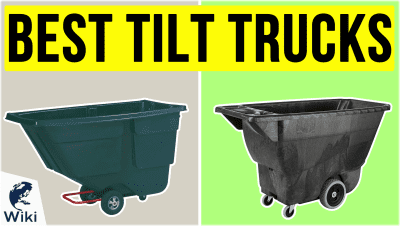6 Organizations Working To Improve Lives In Africa
An extraordinarily diverse continent rich with culture and natural resources, Africa still continues to see its progress hobbled by the effects of centuries of colonialism. Thankfully, many organizations are working to bolster the welfare of its vast regions and communities. Providing support via health care, technology, policymaking, and more, the groups listed here strive for a better African future. This video was made with Ezvid Wikimaker.
6 Groups Supporting People in Africa
| Organization | Mission |
|---|---|
| Innovation: Africa | Bring Israeli solar, water, and agricultural technologies to rural African villages |
| FARM STEW | Improve the health and well-being of poor families and vulnerable people by sharing the recipe of abundant life throughout the world |
| Busara Center for Behavioral Economics | Advance and apply behavioral science in the Global South |
| BioInnovate Africa | Support scientists and innovators in the region to link biological-based research ideas, inventions, and technologies to business and the market |
| The Center for Global Health at Massachusetts General Hospital | Partner with diverse communities to exchange life-saving ideas, catalyze scientific discoveries, deliver compassionate care, and train the next generation of leaders in global health |
| The African Institute for Development Policy | Help bridge the gaps between research, policy, and practice in development efforts in Africa |
An Overview of Innovation: Africa
African Poverty Facts and Stats
As per Children International
- Africa is the poorest continent on Earth
- Half of the continent's population is children, up to 20% of whom are disabled
- An estimated 50 million orphans live in Africa
- Malaria kills 3,000 African children per day
- 589 million sub-Saharan Africans live without electricity
- Water and sanitation issues cost African countries more than the total economic aid they receive
The Story of Busara
7 Great African Films
- Black Girl (1966)
- The Little Girl Who Sold the Sun (1999)
- Waiting for Happiness (2002)
- Moolaadé (2004)
- Atlantics (2019)
- Touki-Bouki (1973)
- Xala (1975)
Changing the African Narrative
In Depth
Though Africa possesses abundant natural resources and a growing population, many regions of the continent still struggle with problems including poverty, political instability, and infectious disease. These challenges have inspired a wide range of solutions from aid and development organizations, from local education and infrastructure projects to initiatives for broad policy reform. In no particular order, here are six groups helping to enhance African well-being and prosperity.
Opening our list at #1 is Innovation: Africa, a nonprofit equipping rural villages with crucial infrastructure improvements. Founded by finance and energy expert Sivan Ya'ari, this organization shares Israeli-created electric and agricultural technology well-suited to African climate conditions. iA's projects utilize solar energy to provide power for public facilities like schools and health centers.
Along with electricity for light and information technology, iA drills wells and provides solar pumps, providing access to clean drinking water and efficient irrigation systems. Local Project Managers train client communities to maintain the infrastructure, and the organization's remote monitoring capability allows for ongoing tracking of results. The Humans of iA online gallery shares stories from beneficiaries of the group's efforts.
Local Project Managers train client communities to maintain the infrastructure, and the organization's remote monitoring capability allows for ongoing tracking of results.
Following up at #2 is FARM STEW, dedicated to fostering local abundance in struggling communities throughout Africa and the USA. This group conducts training on subjects such as healthy nutrition and sanitation, focusing on sustainable and inexpensive factors such as plant-based diets and simple technologies. The organization's projects include instruction in home agriculture for food security, and enterprise lessons that build skills for small business development.
Rooted in the values of the Seventh-day Adventist faith, FARM STEW's trainings include Bible-inspired life strategies like positive outlook, adequate rest, and healthy moderation. The program also works to provide needed resources, such as adequate hydration, or feminine hygiene goods for school girls. The organization trains others to use its methods, and shares information in person and through its blog.
At #3 we have Busara, an organization conducting behavioral research in the Global South, to improve the effectiveness of efforts promoting prosperity and well-being. Busara conducts studies in regions like Kenya and Nigeria, examining the attitudes and perceptions affecting the outcomes of development programs. These surveys investigate topics like usage of digital finance tools in Africa, or factors affecting nutritional education efforts in Fiji.
These surveys investigate topics like usage of digital finance tools in Africa, or factors affecting nutritional education efforts in Fiji.
Busara's surveys investigate the motivations for behaviors such as civic engagement, gender-based violence, and financial decision-making, tackling issues like preserving dignity for clients of aid organizations. The group's blog shares lessons derived from its research, such as strategies for effectively engaging informal networks, or insights on the effects of ownership on altruism.
#4 in our review is BioInnovate Africa, a regional initiative supporting the development and implementation of innovations drawn from the life sciences. This program funds research and development projects such as breeding of blight-resistant varieties of beans, commercial production of clean-burning cooking fuel, and creation of protocols for sustainable pest control.
BioInnovate Africa helps to bring advances in biological research to market, with events like boot camps for science-based entrepreneurship, or multi-sector collaborations on pro-growth policy. Many of its projects aim to improve agriculture or public health, such as an investigation into mosquito-repelling plant extracts in Sub-Saharan Africa. The organization provides numerous informational resources on supporting innovation in the region.
BioInnovate Africa helps to bring advances in biological research to market, with events like boot camps for science-based entrepreneurship, or multi-sector collaborations on pro-growth policy.
Coming in at #5 is the Center for Global Health at Massachusetts General Hospital, working to improve public health practices around the world. The Center offers fellowships focused on medicine and nursing in vulnerable regions. It also provides targeted grants like the Discovery Foundation Award, supporting specialists at medical schools in South Africa, or the Thomas S. Durant Fellowship for providers serving refugee populations.
MGH Global Health operates a disaster response program, providing medical supplies and trained personnel in the wake of humanitarian crises; past efforts include cyclone relief in Mozambique and refugee care in Sudan. Other programs include the Global Health Research Collaborative, an interdisciplinary project advancing theory and practice in caring for under-served populations, and the MGH Asylum Clinic for individuals seeking political refuge.
Concluding our list at #6 is the African Institute for Development Policy, an African-led initiative working to enhance regional development efforts through evidence-based approaches. This organization examines the impact of interventions in focus areas like disease prevention, skill-building education, and sustainability. By evaluating the outcomes of programs such as family planning education or community reforestation efforts, AFIDEP generates recommendations to inform future work.
By evaluating the outcomes of programs such as family planning education or community reforestation efforts, AFIDEP generates recommendations to inform future work.
AFIDEP's contributions include a multidisciplinary assessment of lung health risks across multiple nations, a push to increase communication between researchers and policy makers, and efforts to strengthen institutional capacity for democratic governments. The organization produces numerous publications on promoting development in Africa, from journal articles to policy briefs, and shares blog posts discussing lessons learned and future challenges.
















